Are you navigating the tricky waters of legal settlement negotiations? Writing a clear and effective letter can make a world of difference in reaching an amicable resolution. By outlining your position and addressing key concerns in a structured way, you set the stage for productive discussions. If you're keen to learn more about crafting the perfect settlement negotiation letter, keep reading!
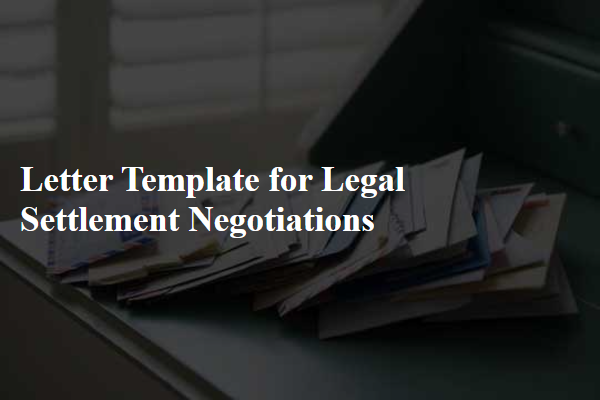
Clear Introduction and Background Context
Introduction of legal settlement negotiations typically begins with a concise statement outlining the purpose of communication. Background context encompasses crucial details surrounding the case, including key dates, location of the incident, and parties involved. For example, in a settlement negotiation regarding a personal injury claim arising from an automobile accident on March 15, 2023, at Main Street and Oak Avenue, the plaintiff, John Doe, seeks compensation from the defendant, XYZ Insurance Company. The context of the negotiation involves medical expenses totaling $15,000, lost wages amounting to $5,000, and emotional distress factors related to the accident. The negotiation aims to reach an amicable resolution without proceeding to trial, acknowledging the legal rights of both parties and the desire for a timely settlement.
Concise Statement of Issues and Claims
Legal settlement negotiations often center on various disputes that require clarity and precision. Key issues may include breach of contract, where either party fails to fulfill contractual obligations; tort claims involving negligence, leading to damages or injuries; and intellectual property infringements, concerning unauthorized use of proprietary information or trademarks. Each claim presents unique details such as financial losses, evidence of wrongdoing, and applicable laws, like the Uniform Commercial Code for sales disputes. Furthermore, location can impact jurisdictional considerations, with different states having varying statutes of limitation that affect legal recourse timelines. Notably, factors like potential jury biases or public perceptions can also shape negotiation strategies and settlement amounts.
Proposed Settlement Terms and Conditions
A proposed settlement agreement outlines specific terms designed to resolve legal disputes between parties, often avoiding prolonged litigation. Key terms typically include compensation amounts, deadlines for payment, confidentiality clauses, and mutual releases of claims. For example, a stipulated sum of $50,000 may be proposed to resolve a personal injury claim stemming from an incident on March 15, 2023, at an establishment in Denver, Colorado. Additionally, the terms might prohibit either party from disclosing details of the settlement, ensuring privacy. Specific deadlines, such as a 30-day timeline for the execution of the settlement agreement, further provide clarity. Conditions related to future claims arising from the same incident can also be included to prevent further litigation, effectively closing the chapter on the dispute.
Justification and Supporting Legal Arguments
Effective legal settlement negotiations require a solid understanding of the underlying justifications and supporting legal arguments. One essential component is the assessment of liability, which involves analyzing case precedent and applicable statutes within the jurisdiction, such as tort laws in California or contract laws in New York. The financial implications, including estimated damages calculated from medical expenses, lost wages, and property damage, should be meticulously documented, potentially exceeding hundreds of thousands of dollars in serious cases. Additionally, the potential costs of litigation, such as attorney fees and court expenses, can reach tens of thousands of dollars, influencing parties to reach a settlement. Negotiation tactics that emphasize the potential for a favorable settlement outcome, the uncertainty of trial verdicts, and the timelines involved must also be articulated to persuade the other party effectively. Overall, robust arguments grounded in detailed evidence and strategic legal reasoning contribute significantly to successful settlement discussions.
Call to Action and Timeline for Response
In legal settlement negotiations, a clear call to action with a specified timeline for response is crucial for fostering effective communication between parties. A proposed settlement agreement, outlining key terms and conditions, prompts the receiving party to carefully consider the offer while acknowledging potential implications, such as financial compensation or adverse legal consequences. By establishing a deadline -- typically 14 to 30 days -- for the response, parties can create a sense of urgency that encourages timely dialogue and decision-making. This structured approach can facilitate a resolution and minimize prolonged litigation, ultimately saving both time and resources in complex legal disputes.

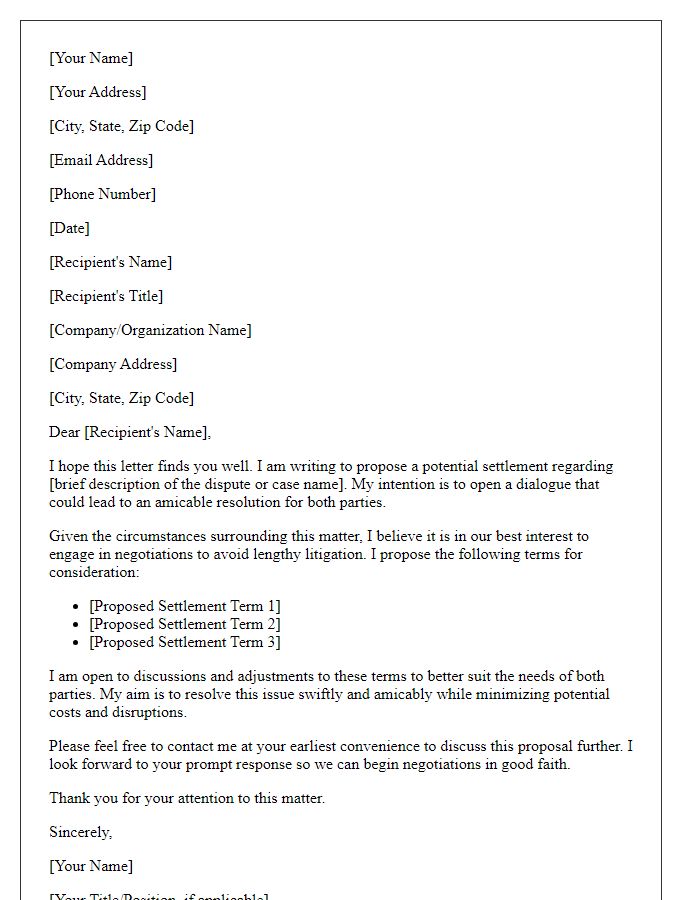
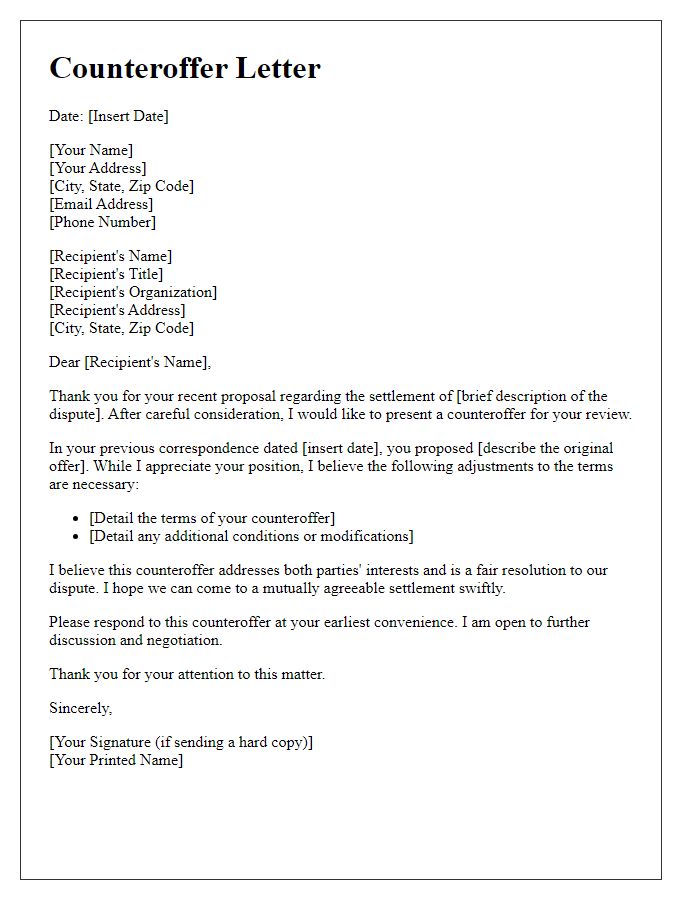
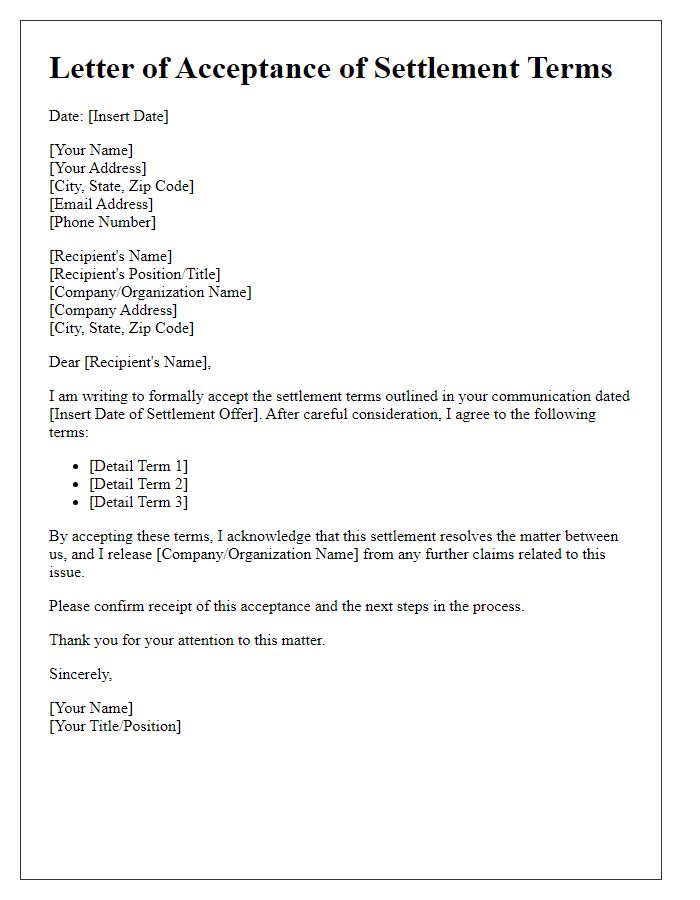
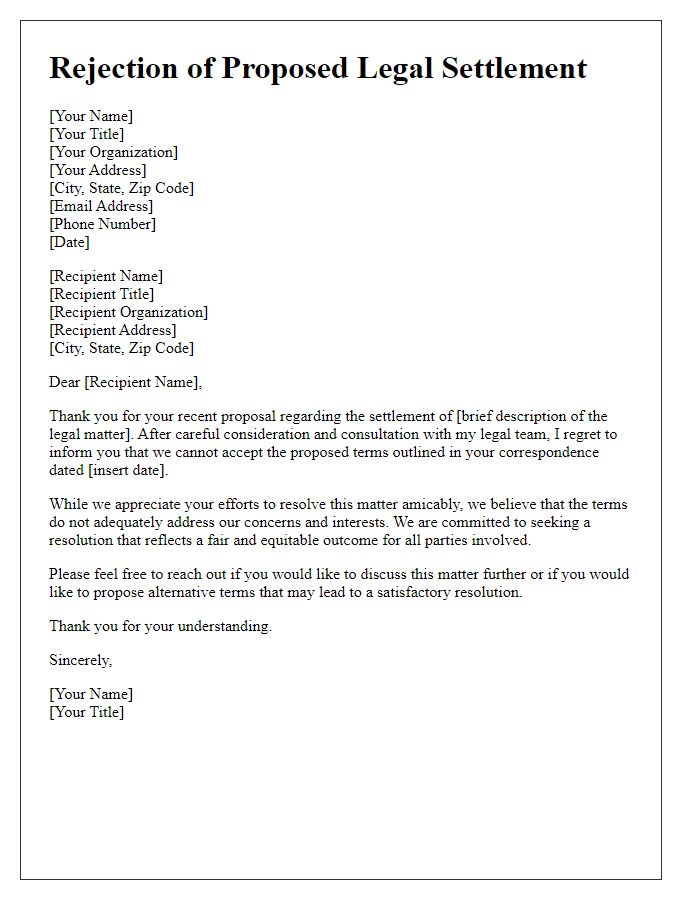
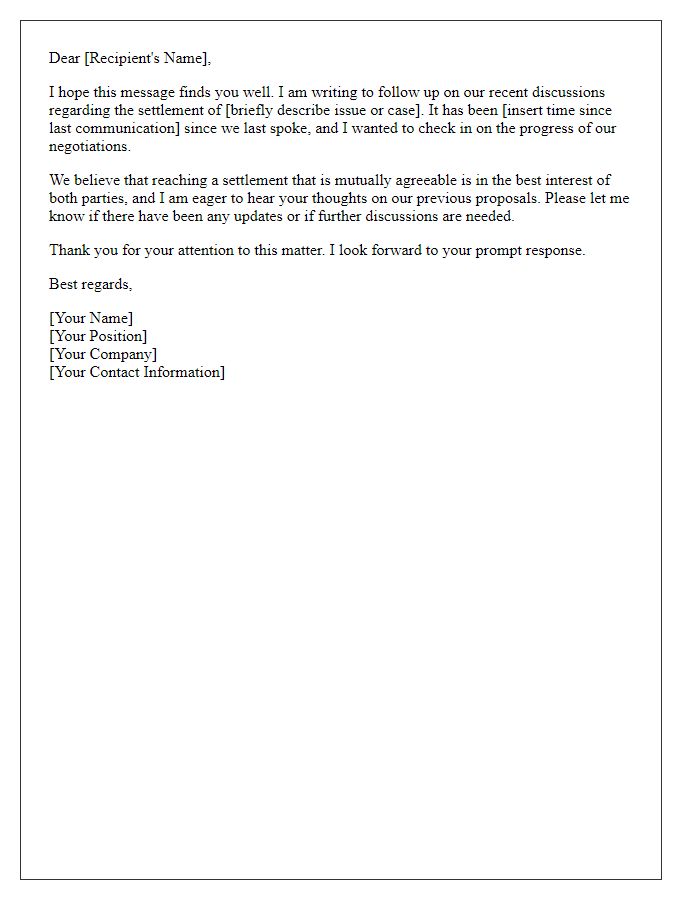
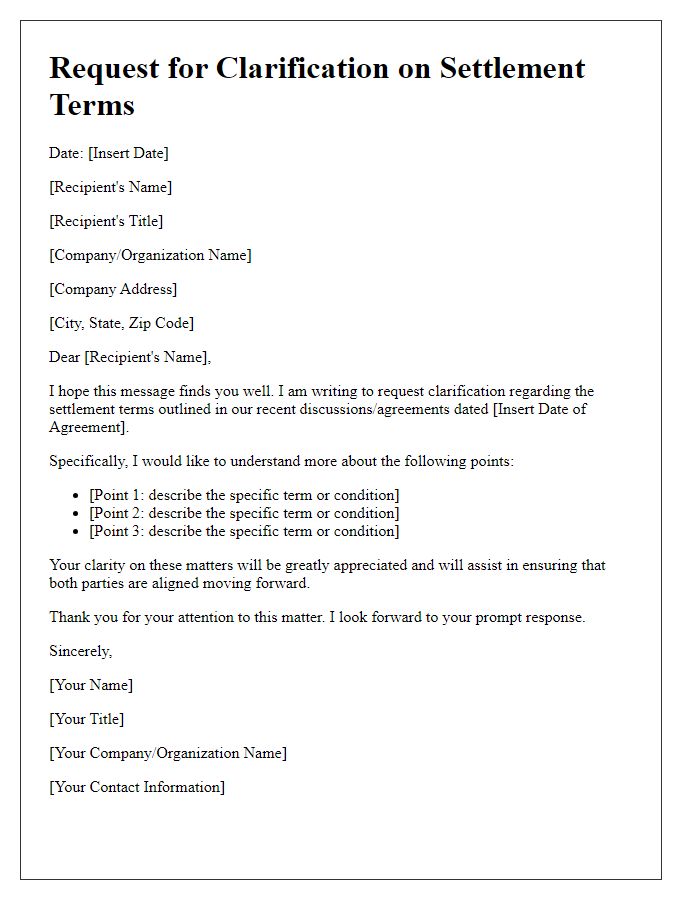
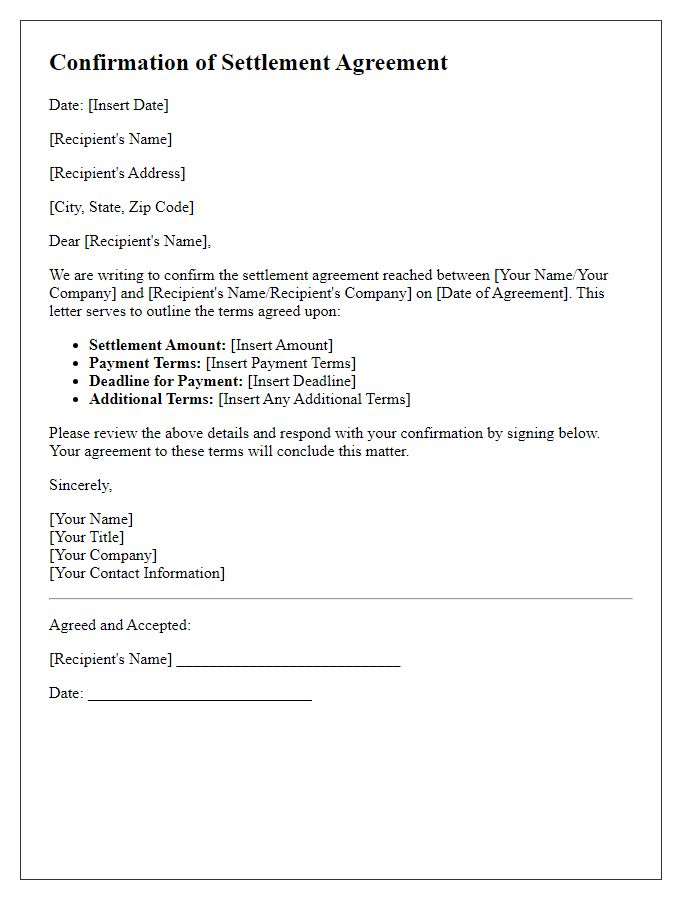
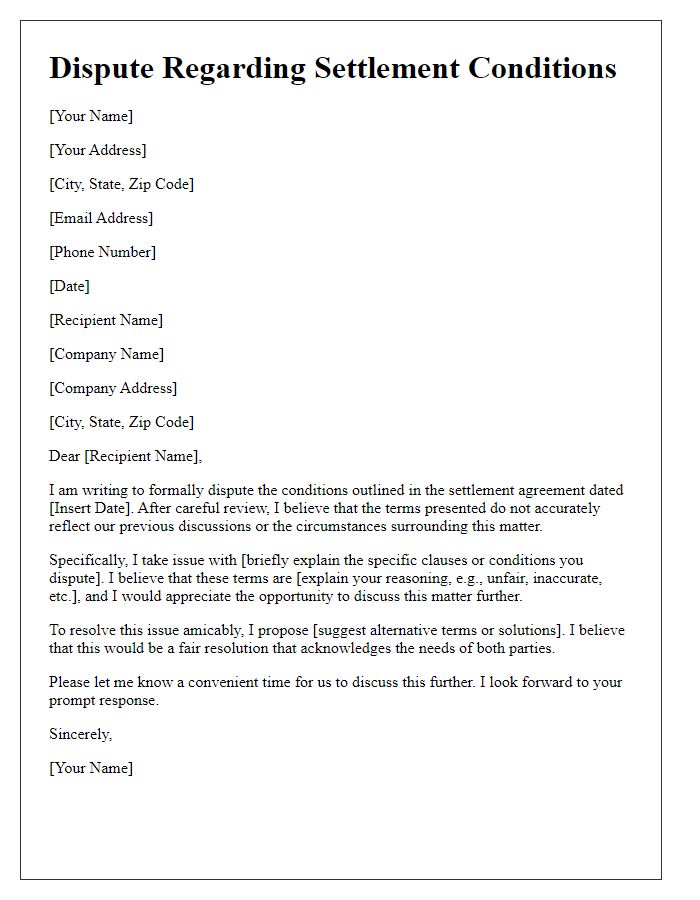
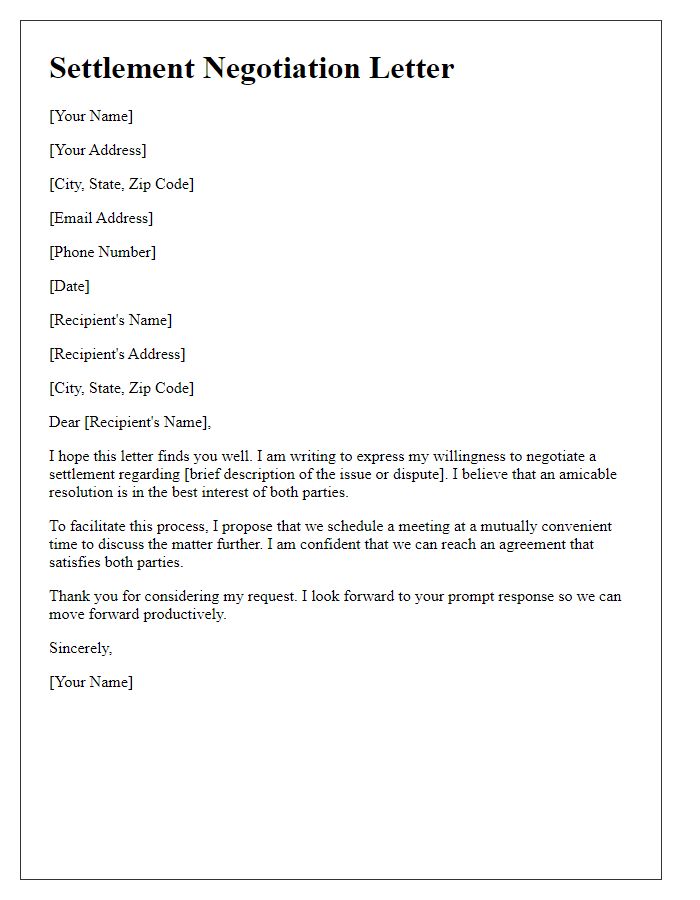
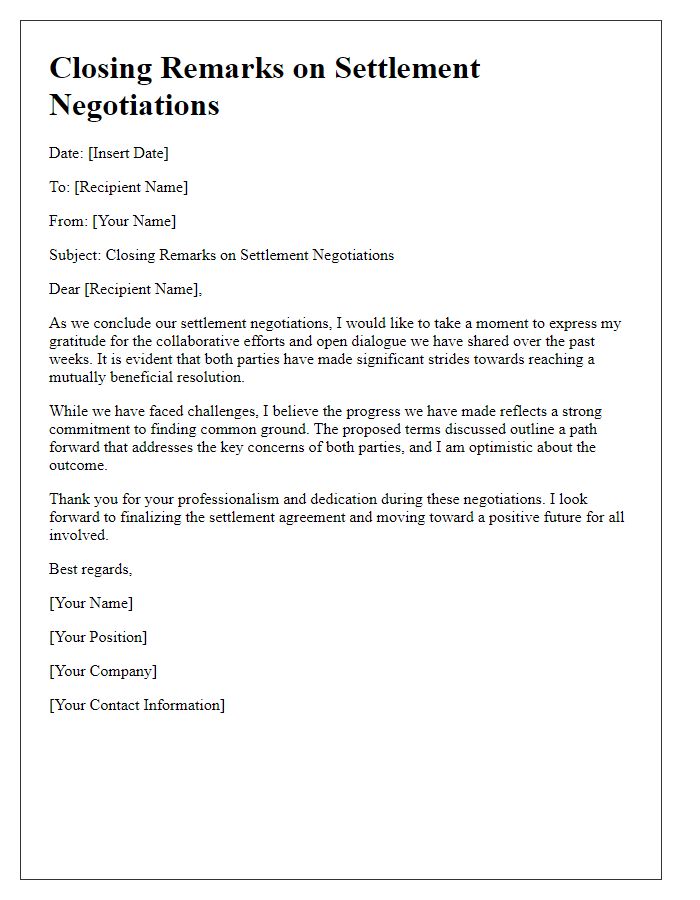


Comments